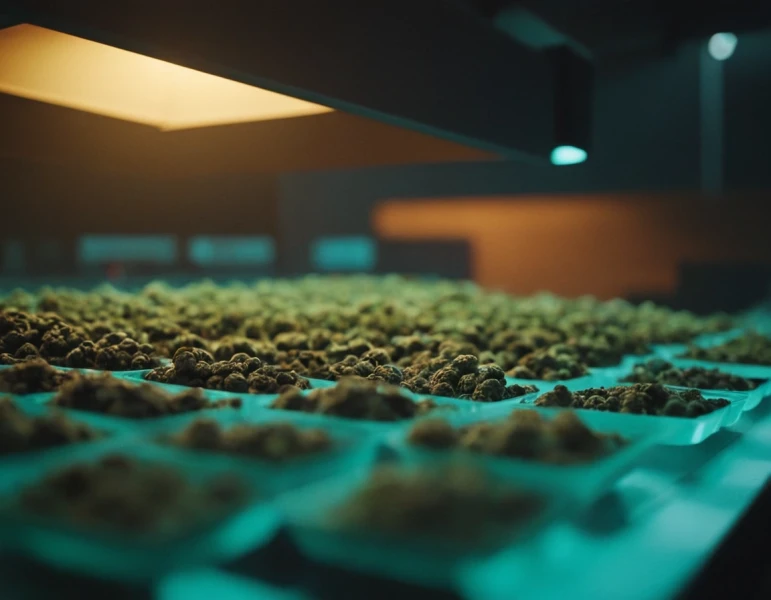Educa UNIVERSITY|SCIENCE AND ENGINEERING
Biotechnology: A View from Experience
Related Masters
Biotechnology: A View from Experience
Biotechnology has radically changed the way we interact with the world. And believe me, I know this because I have had the privilege of being involved in this field for decades. My name is Pablo Garcia, and throughout my career, I have seen firsthand how this discipline has transformed medicine, agriculture and even industry. Can you imagine being able to modify the DNA of an organism to produce human insulin in bacteria? Incredible, right?
But wait... before you saturate yourself with scientific terms, let me tell you what I've learned over the years, simply and to the point. Because it's not just about genes, crops or laboratories, it's about how biotechnology impacts our daily lives without us even noticing.
What is biotechnology?
To begin with, biotechnology is the use of living organisms or their components (such as cells, enzymes or genes) to develop products that benefit humanity. Although it sounds complicated, we already live with it daily: from the yogurts we consume, to the medicines we take, to the biofuels that drive our vehicles. It's a science that combines biology with technology, and the possibilities are endless!

Brief history of biotechnology
I'll let you in on a secret: biotechnology is not as modern as many people think. As far back as thousands of years ago, humans began using biological processes in activities such as fermentation to produce foods like wine, beer or bread. Yes, every time you drink a beer you are experiencing the first vestiges of biotechnology. But it was in the 1970s when this discipline experienced its great leap with the manipulation of DNA, what we know today as genetic engineering.
That's when what we call modern biotechnology began, when scientists learned to manipulate DNA to modify living organisms and create more efficient or useful products for society. Thanks to this revolution, today we can mass-produce drugs such as insulin, generate more resilient crops and develop environmental technologies that combat pollution.
What are the applications of biotechnology?
This is where it gets interesting. biotechnology touches almost every area of our lives. Here's an overview of the most important applications:
1. Medical biotechnology or red biotechnology
This branch has been a game changer for medicine. It is used to develop drugs, vaccines and gene therapies. For example, the development of recombinant insulin has made it possible to treat millions of people with diabetes, more effectively and safely. In addition, red biotechnology is behind innovative treatments such as stem cell therapy, which opens the door to cures for degenerative diseases such as Alzheimer's or Parkinson's.
2. Agricultural biotechnology or green biotechnology
This is where the field and technology come together. With agricultural biotechnology, we improve crops, making them more resistant to pests and climate changes. A famous example is Bt corn, a variety genetically modified to produce toxins that kill insects, without affecting human consumption. There are also fortified crops such as golden rice, which is designed to combat vitamin A deficiency in developing countries.
3. Industrial biotechnology or white biotechnology
In the industrial sector, biotechnology is used to create biodegradable or more environmentally friendly products. From eco-friendly detergents to biofuels, industrial biotechnology is transforming industrial production to be cleaner and more sustainable. Every time you use a detergent or buy a bioplastic, you are interacting with the products of this branch of biotechnology.
Advantages and disadvantages of biotechnology
Like everything in life, biotechnology has its lights and shadows. The advantages are clear: greater food production, more accessible medicines, reduction of pollutants and treatments for diseases that previously had no cure. However, we cannot ignore some disadvantages. For example, transgenic foods have generated debates about their possible effects on health and the environment. In addition, genetic manipulation raises ethical questions about how far we should go in controlling life.
But, in my experience, the advantages far outweigh the disadvantages. The key lies in a responsible and ethical use of technology.
My personal experience with biotechnology
I remember when, in the 1990s, I was involved in a plant cloning project to improve food production. It was not easy, but the results were fascinating: we doubled the resistance of certain crops to water stress, something that was revolutionary for drought-stricken areas. That is the magic of biotechnology, making possible what seemed unthinkable before.
And today, decades later, I am still amazed at how far this discipline has come. From the creation of vaccines to the development of personalized drugs, biotechnology continues to transform our world. And best of all, there is still much to discover.
Conclusion: the future of biotechnology
If I have learned anything after so many years working in this field, it is that the future of biotechnology is promising. We are already seeing advances in fields such as gene editing with technologies such as CRISPR, which allow DNA to be modified precisely and efficiently. This will open new doors in disease cures, food production and environmental protection.
And if I'm being honest, we are just scratching the surface of what this science can accomplish. If there is one thing I can tell you from my experience, it is that biotechnology is not just the future, it is the present. And you, without even realizing it, are already part of this incredible world.
Faculties
Trainings
The faculties embrace diverse academic disciplines and fields of study, opening doors to new perspectives and exploring different spheres of wisdom in a constantly evolving world.














